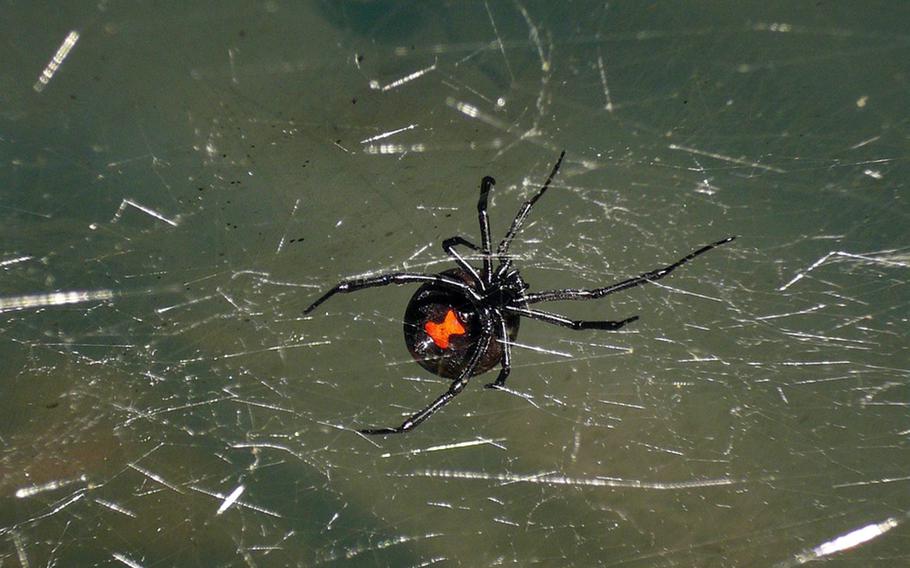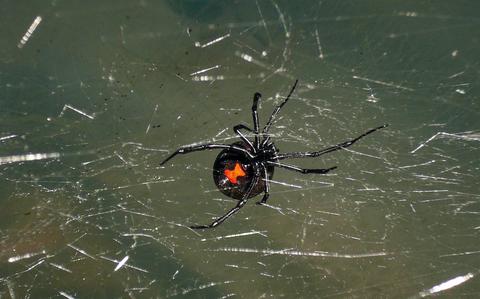
Marine Corps Air Station Iwakuni in Japan has faced a growing infestation of venomous spiders since the early 2000s. (jgiammatteo/Pixabay)
License
Source
MARINE CORPS AIR STATION IWAKUNI, Japan — This U.S. military base near Hiroshima has killed more venomous spiders this year than in any year since recordkeeping began nearly two decades ago, Japanese authorities said Monday.
MCAS Iwakuni exterminated 3,506 black widow, brown widow and redback spiders between July 22 and Oct. 21, according to a news release from Yamaguchi prefecture.
That figure marks the highest quarterly total since 2006, when the base began reporting its eradication efforts to the prefecture and Iwakuni city, an official with Iwakuni city’s Environmental Policy Division said by phone Wednesday.
The prefecture also reported that twice as many venomous spiders were killed between April and July as during the same period last year.
“As we have been saying even with or without the number of spiders increasing, the local residents are concerned with widow spiders expanding off base, so we ask that the base take thorough measures to prevent them expanding off base,” he said. Some Japanese government officials are required to speak to the press on condition of anonymity.
All three spider species belong to the genus Latrodectus and are considered invasive in Japan. The air station, about 25 miles southeast of Hiroshima, has faced a growing infestation since the early 2000s, after the species first appeared in Japan in the mid-1990s. They were officially designated invasive in 2015.
MCAS Iwakuni has attributed the rise in spider numbers to above-average temperatures, which can increase breeding speed, according to the city spokesman. He said the base reported assigning more personnel to extermination efforts.
However, Koichi Goka, a researcher at the National Institute for Environmental Studies, said high temperatures generally decrease insect populations, reducing the prey available for spiders. He said by phone Friday that more data is needed before drawing conclusions and that temperature alone may not explain the increase.
MCAS Iwakuni reported killing 2,345 spiders in the third quarter of 2024, according to its report to the prefecture — about 1,000 more than the same period last year. Goka said the year-over-year difference is not significant given how rapidly spiders reproduce.
Adding more people to hunt spiders is also unlikely to reduce the population in a meaningful way, he said.
“The rate of how many humans can capture the spiders cannot catch up with how much spiders breed,” he said. “It is likely that the number of spiders will continue to increase.”
The prefecture, citing local concerns, has asked the air station to continue cutting grass along the boundary fence to prevent spiders’ spread off base. Spiders were found closest to the boundary along the fence of Iwakuni Kintaikyo Airport, which shares a runway with the base, according to the prefecture.
A spokesman for MCAS Iwakuni said the base environmental division declined a request to interview someone about the base’s spider population.
“MCAS Iwakuni provides a regular report regarding spider eradication efforts to the government of Iwakuni City,” Maj. Mason Englehart said by email Friday. “The air station strives to maintain transparency and communication with local leaders to ensure they are informed of our continuous efforts to eradicate spiders on the installation.”


AloJapan.com